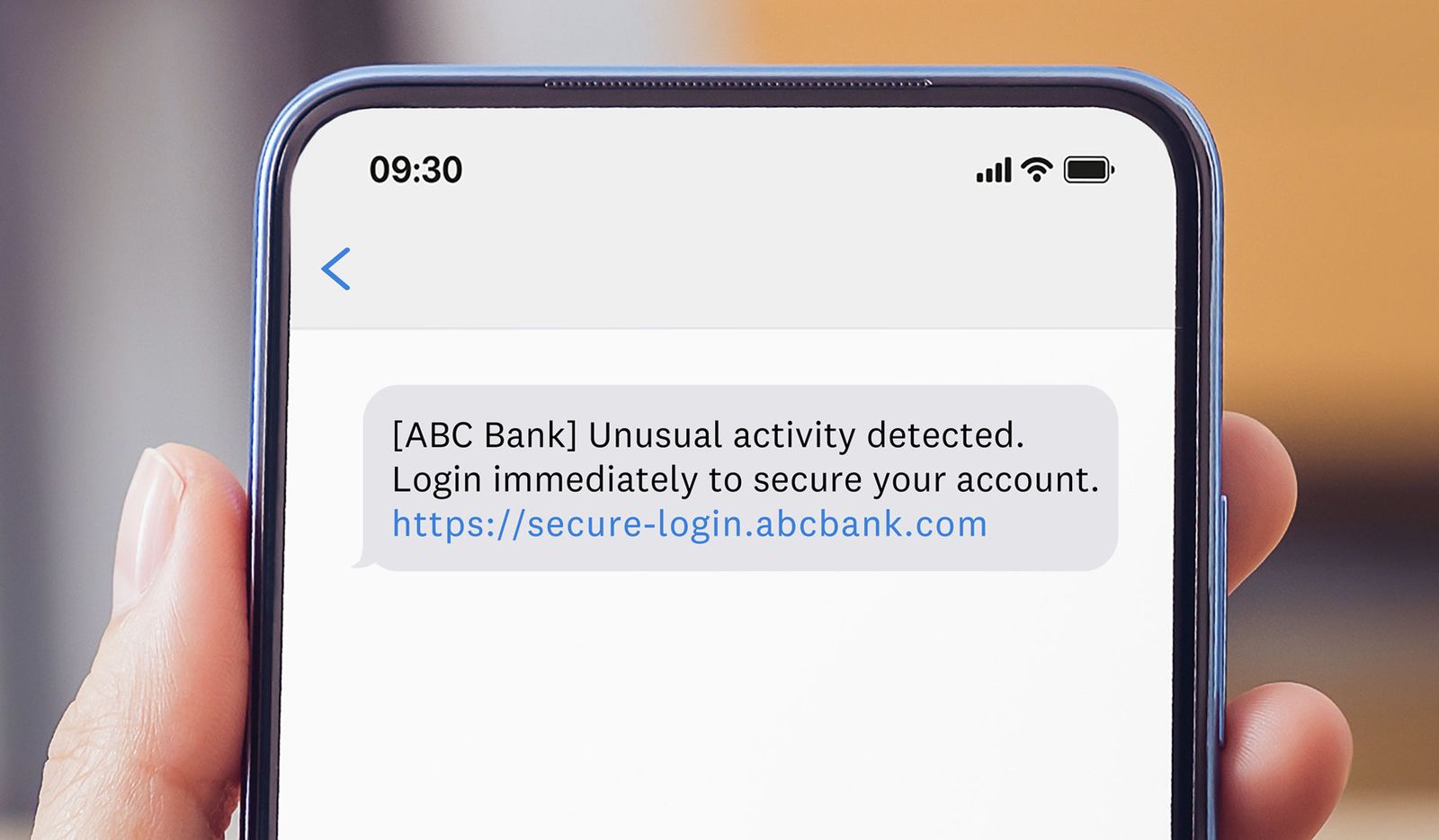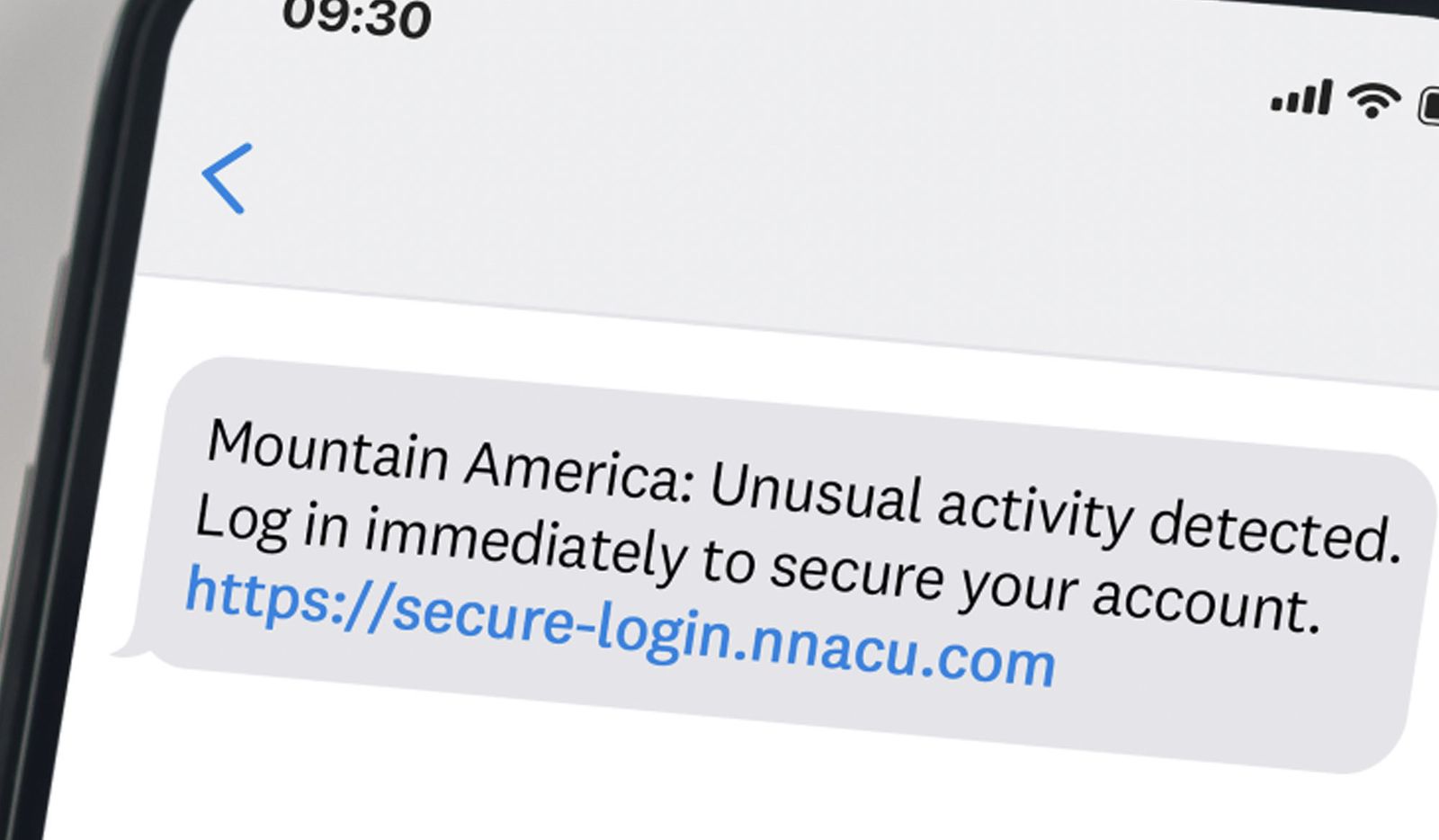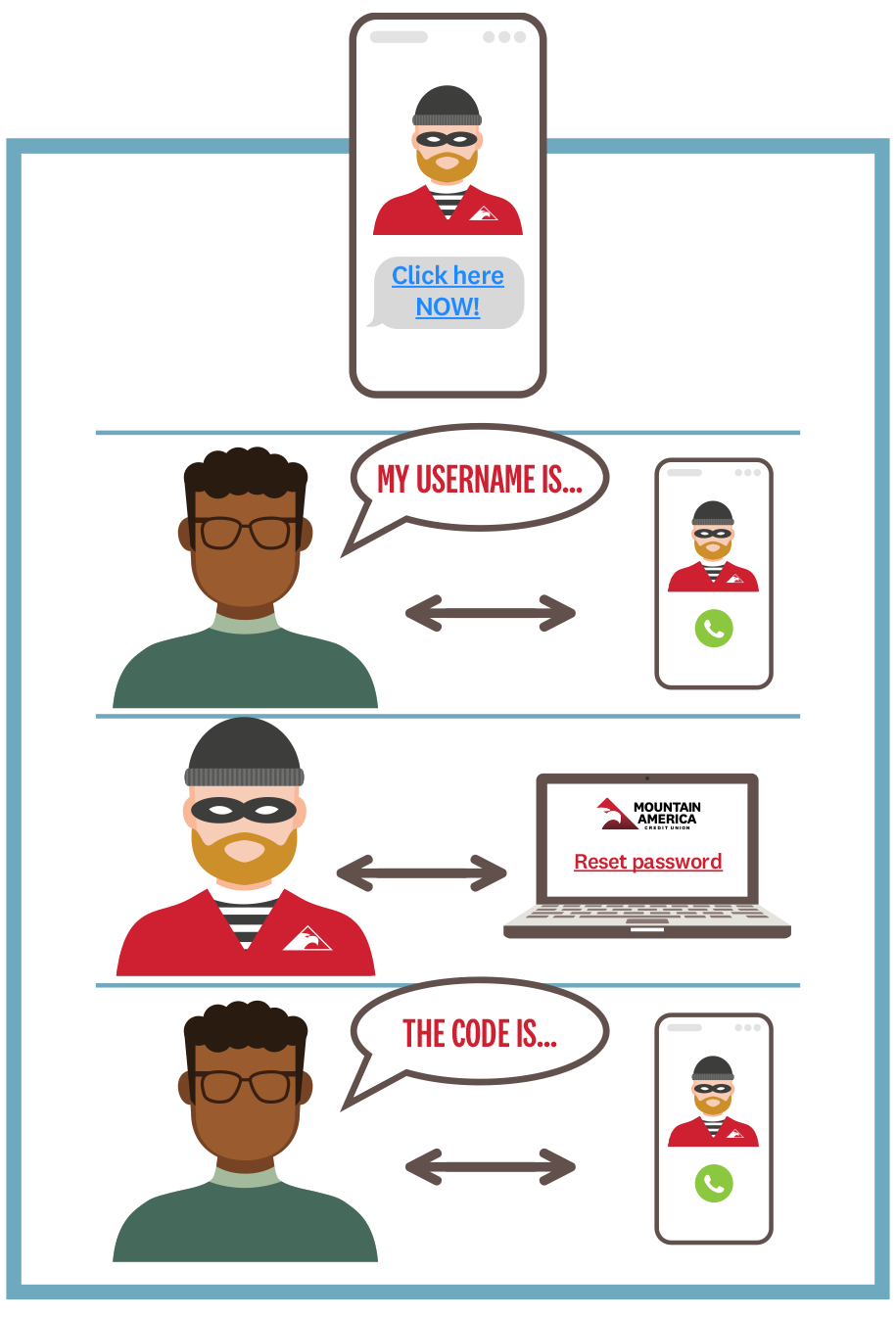

Think Twice—It Could Be a Scam
Quick Summary
Don’t let urgency cloud your judgment. Fraudsters impersonate financial institutions to pressure you into sharing passwords and verification codes. Discover the warning signs of phishing scams and remember, Mountain America will never ask for sensitive information via text or email.

You may have seen phishing messages like the one below. Often the financial institution isn’t one you use, so it’s easy to ignore.

But what do you do when a similar text or email appears to be from Mountain America?

We hope you think twice before clicking—it could be a scam.
Why these tactics work
The pressure to act quickly is a powerful psychological motivator—you don’t want to drag your feet on important matters. Add to that the fear of losing your hard-earned money, and it’s easy to see why some people want to act fast.
What the scam looks like
If you respond to a phishing text or email, the scammer will call you, spoofing the financial institution’s phone number and saying something like: “Hi, I’m Sam with the fraud department. I need you to verify your online username for security purposes.”

Armed with your username, they can go to the website or app and select the forgot password option. This will send a passcode to your phone.
The fraudster will then say, “I just need to verify one more thing. Please confirm the security code I just sent you.” The scammer now has the information to change your password, take over your account and walk away with your money.
How to protect yourself
While this scenario sounds scary, you can easily avoid scammers’ traps by following these pointers.
Learn how to spot phishing emails and spoofed websites or phone numbers:
• Don’t share your personal information with an unknown caller.
• Make sure the sender’s email address matches their name.
• Hover over links to see if the web address appears suspicious—for example, mntam-cu.com or nnacu.com.
• Don’t download files or click links in unsolicited messages.
• Beware of caller ID—it can be spoofedRemember, Mountain America will never call, text or email asking you for:
• Your account number.
• Our routing number.
• Credit or debit card PINs.
• Digital banking usernames or passwords.
• Full Social Security numbers.
• The CVV code on the back of your credit or debit card.
• Verification codes.
Please note, we may ask for some of that information if you contact us.
When in doubt, reach out
If you are unsure about a message you receive or you suspect you have been scammed, contact the credit union right away at 1-800-748-4302. We have the financial professionals and tools to help you navigate the situation.